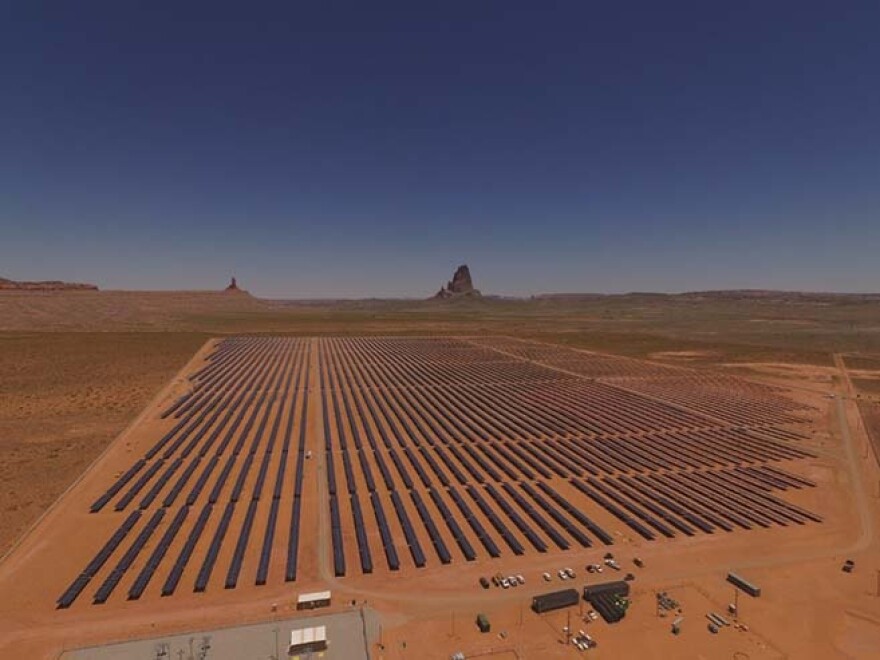The U.S. Department of Energy has awarded more than a million dollars to the Navajo Nation to bring electricity to two-dozen homes. It’s part of a broader renewable energy initiative within the Biden administration designed to create tribal energy resilience.
Overall, $9 million will go to 13 tribes and Alaska Native communities to tap undeveloped solar, hyrdo and geothermal energy projects. Officials say it’ll stabilize energy costs and power 1,200 homes that lack electricity through microgrids.
On the Navajo Nation, crews will install a solar photovoltaic system along with battery storage and a backup propane generator to power 24 homes in the Comb Ridge/El Capitan community in the Kayenta Chapter. It’ll also supply high-speed internet to the area and power pumps to bring water to homes.
Navajo Nation President Jonathan Nez says the project will build on several other renewable energy initiatives that’ve been ongoing there for years.
"It is important for us to get basic infrastructure like water and electricity to the most rural part of our nation, especially in a time of the pandemic. We’re in a prime location here on the Navajo Nation to provide that type of energy," Nez says.
An estimated 15,000 households, or about 30% of Navajo Nation residents, lack electricity. Next month the third phase of the separate Light Up Navajo project is set to begin with a goal of connecting 300 more homes to the grid, including many tribal veterans.
Nez says he wants to eventually connect the entire Navajo Nation to the grid and sell any surplus energy to western cities like Albuquerque and Los Angeles to offset the loss of revenue as coal-fired power plants in the region continue to close.



